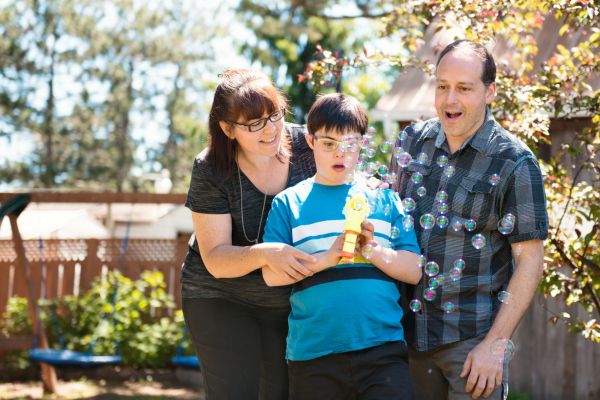Autism is a spectrum disorder that affects communication, behavior, and social interaction. Autistic children often have unique learning needs and may struggle in traditional school settings. Homeschooling can provide a more individualized and supportive learning environment for autistic children, helping them to reach their full potential.
Here are seven benefits of homeschooling for autistic children:
1. Individualized education
One of the biggest benefits of homeschooling is that it allows parents to tailor the curriculum to their child’s individual needs. This is especially important for autistic children, who often learn in different ways than their neurotypical peers. Homeschooling parents can focus on their child’s strengths and interests, and provide additional support in areas where they need it.
2. Supportive learning environment
Homeschooling can provide a more supportive and inclusive learning environment for autistic children. Autistic children may be overwhelmed or stressed by the noise and chaos of a traditional classroom. Homeschooling parents can create a more relaxed and predictable learning environment, where their child can feel comfortable and supported.
3. Reduced stress and anxiety
Autistic children are often more prone to stress and anxiety than their neurotypical peers. Homeschooling can help to reduce stress and anxiety by providing a more predictable and controlled learning environment. Homeschooling parents can also take breaks as needed and adjust the schedule to meet their child’s needs.
4. Socialization opportunities
Homeschooling does not mean that autistic children have to be isolated. There are many opportunities for autistic children to socialize in a homeschool setting. Homeschooling parents can join co-ops, sports teams, and other extracurricular activities specifically for homeschoolers. Autistic children can also socialize with their siblings, neighbors, and other homeschoolers in their community.
5. Flexibility
Homeschooling offers a great deal of flexibility. Homeschooling parents can choose their child’s hours, location, and curriculum. This flexibility can be especially beneficial for autistic children, who may need to take breaks frequently or who may not be able to handle a traditional school schedule.
6. Affordable education
Homeschooling can be a very affordable way to educate a child. Homeschooling parents can save money on tuition, transportation, and other costs associated with traditional schooling. There are also many free and low-cost resources available to homeschooling families.
7. Parental involvement
Homeschooling allows parents to be more involved in their child’s education. Homeschooling parents can choose the curriculum, teach the lessons, and provide one-on-one attention to their child. This parental involvement can help autistic children to succeed academically and socially.
How to get started with homeschooling:
If you are considering homeschooling your autistic child, there are a few things you can do to get started:
- Research homeschooling laws in your state. Each state has different homeschooling requirements, so it is important to research the laws in your area.
- Choose a homeschooling curriculum. There are many different homeschooling curricula available, so it is important to choose one that is right for your child’s learning needs and interests.
- Create a homeschooling schedule. Homeschooling parents can choose their own hours, so it is important to create a schedule that works for your family.
- Join a homeschooling support group. There are many homeschooling support groups available, both online and in person. These groups can provide support and guidance to homeschooling parents.
Conclusion
Homeschooling can be a great option for autistic children. Homeschooling parents can provide their child with an individualized, supportive, and flexible learning environment. Homeschooling can also help to reduce stress and anxiety, and provide opportunities for socialization. If you are considering homeschooling your autistic child, there are many resources available to help you get started.
FAQ about Homeschooling for Autistic Children
1. What are the benefits of homeschooling for autistic children?
There are many benefits to homeschooling for autistic children, including:
- Individualized education: Homeschooling allows parents to tailor the curriculum to their child’s individual needs and interests. This is especially important for autistic children, who often learn in different ways than their neurotypical peers.
- Supportive learning environment: Homeschooling can provide a more supportive and inclusive learning environment for autistic children. Autistic children may be overwhelmed or stressed by the noise and chaos of a traditional classroom. Homeschooling parents can create a more relaxed and predictable learning environment, where their child can feel comfortable and supported.
- Reduced stress and anxiety: Autistic children are often more prone to stress and anxiety than their neurotypical peers. Homeschooling can help to reduce stress and anxiety by providing a more predictable and controlled learning environment. Homeschooling parents can also take breaks as needed and adjust the schedule to meet their child’s needs.
- Socialization opportunities: Homeschooling does not mean that autistic children have to be isolated. There are many opportunities for autistic children to socialize in a homeschool setting. Homeschooling parents can join co-ops, sports teams, and other extracurricular activities specifically for homeschoolers. Autistic children can also socialize with their siblings, neighbors, and other homeschoolers in their community.
- Flexibility: Homeschooling offers a great deal of flexibility. Homeschooling parents can choose their child’s hours, location, and curriculum. This flexibility can be especially beneficial for autistic children, who may need to take breaks frequently or who may not be able to handle a traditional school schedule.
- Affordable education: Homeschooling can be a very affordable way to educate a child. Homeschooling parents can save money on tuition, transportation, and other costs associated with traditional schooling. There are also many free and low-cost resources available to homeschooling families.
- Parental involvement: Homeschooling allows parents to be more involved in their child’s education. Homeschooling parents can choose the curriculum, teach the lessons, and provide one-on-one attention to their child. This parental involvement can help autistic children to succeed academically and socially.
2. How do I get started with homeschooling my autistic child?
If you are considering homeschooling your autistic child, there are a few things you can do to get started:
- Research homeschooling laws in your state. Each state has different homeschooling requirements, so it is important to research the laws in your area.
- Choose a homeschooling curriculum. There are many different homeschooling curricula available, so it is important to choose one that is right for your child’s learning needs and interests.
- Create a homeschooling schedule. Homeschooling parents can choose their own hours, so it is important to create a schedule that works for your family.
- Join a homeschooling support group. There are many homeschooling support groups available, both online and in person. These groups can provide support and guidance to homeschooling parents.
3. What are some challenges that I may face as a homeschooling parent of an autistic child?
Some of the challenges that you may face as a homeschooling parent of an autistic child include:
- Creating an individualized education plan (IEP): If your child has an IEP, you will need to work with their former school district to create a new IEP for homeschooling.
- Finding resources: There are many resources available to homeschooling families, but it can be time-consuming to find the right ones.
- Managing your child’s behavior: Autistic children may have difficulty with behavior regulation. Homeschooling parents will need to develop strategies for managing their child’s behavior in a homeschool setting.
- Balancing your own needs with the needs of your child: It is important for homeschooling parents to take care of themselves, both physically and emotionally. Homeschooling can be demanding, so it is important to find time for yourself to relax and recharge.
4. What are some tips for homeschooling an autistic child?
Here are some tips for homeschooling an autistic child:
- Create a structured and predictable learning environment. Autistic children often thrive in structured and predictable environments. Create a homeschooling schedule and stick to it as much as possible.
- Use visual supports. Autistic children may learn better with visual supports, such as pictures, symbols, and schedules.
- Provide breaks and sensory stimulation. Autistic children may need to take breaks frequently and may benefit from sensory stimulation. Build breaks and sensory stimulation into your homeschooling schedule.
- Be patient and understanding. Homeschooling an autistic child can be challenging, but it is also rewarding. Be patient and understanding with your child, and celebrate their successes.






Be First to Comment